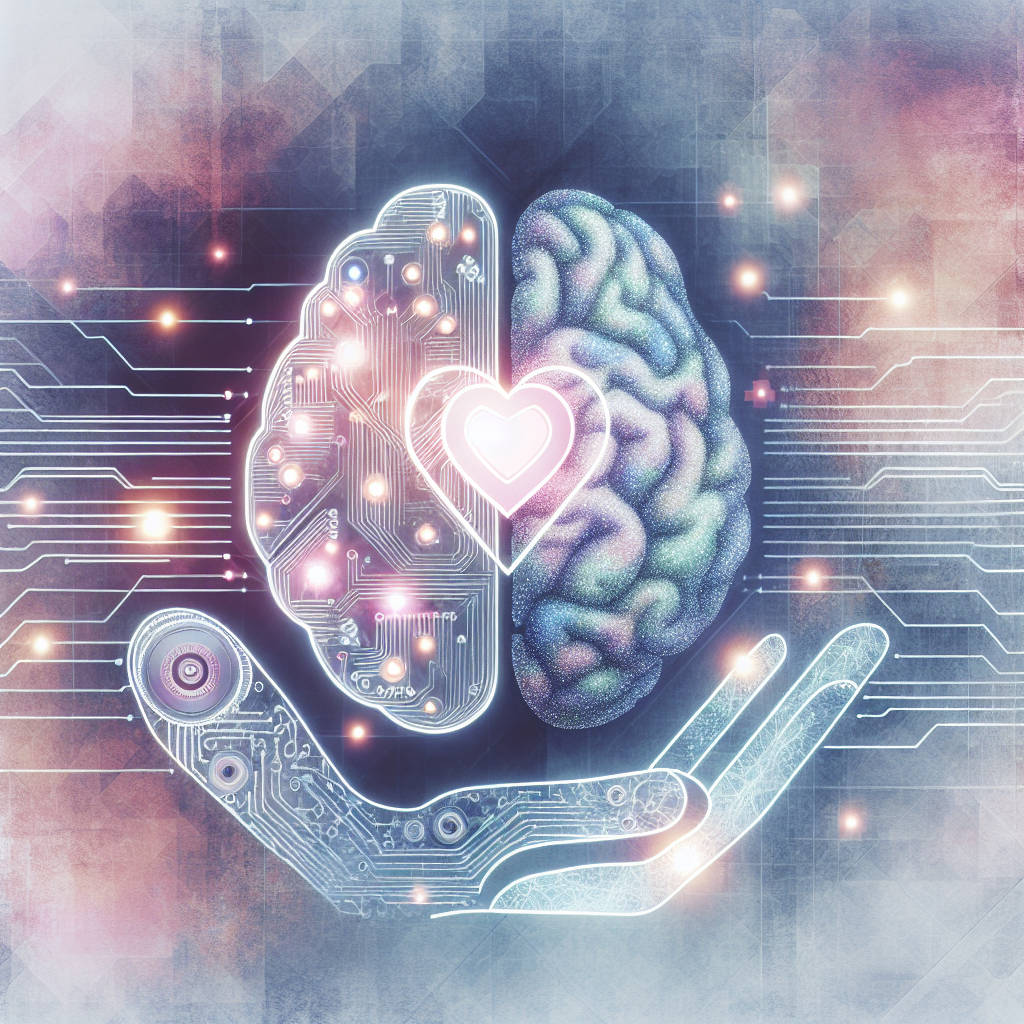In recent years, there has been a growing recognition of the importance of mental health and well-being in our society. As more people seek help for mental health issues, designers and developers are looking for innovative ways to support individuals in their journey towards mental wellness. One emerging solution is the use of artificial intelligence (AI) in designing for mental health.
AI has the potential to revolutionize the way we approach mental health care by providing personalized, accessible, and scalable solutions for individuals struggling with mental health issues. From chatbots that provide real-time support to virtual reality experiences that help individuals manage anxiety, AI-powered tools are transforming the landscape of mental health care.
One of the key ways in which AI is being used in designing for mental health is through the development of chatbots and virtual assistants. These tools can provide instant support and guidance to individuals in need, offering a safe space for them to express their feelings and receive personalized advice. By leveraging natural language processing and machine learning algorithms, these chatbots can analyze user responses and provide relevant resources and suggestions to help individuals cope with their mental health challenges.
Another way in which AI is making a difference in mental health care is through the use of predictive analytics. By analyzing data from various sources, such as social media posts, online searches, and wearable devices, AI algorithms can identify patterns and trends that may indicate a decline in mental health. This information can be used to alert individuals and their healthcare providers to potential issues, allowing for early intervention and support.
Furthermore, AI is also being used to develop virtual reality experiences that can help individuals manage anxiety, phobias, and other mental health issues. By immersing users in realistic and interactive environments, these virtual reality experiences can provide a safe and controlled space for individuals to confront their fears and practice coping strategies. This technology has shown promising results in reducing anxiety and improving mental well-being in clinical trials.
In addition to providing direct support to individuals, AI is also being used to improve the accessibility and efficiency of mental health care services. For example, AI-powered scheduling systems can help individuals book appointments with mental health professionals more easily and quickly, reducing wait times and increasing access to care. Similarly, AI algorithms can analyze large amounts of data to identify treatment options that are most effective for specific individuals, allowing for personalized and targeted interventions.
Despite the potential benefits of AI in designing for mental health, there are also some challenges and ethical considerations to consider. For example, there are concerns about data privacy and security, as well as the potential for bias in AI algorithms. It is important for designers and developers to prioritize transparency, accountability, and user consent when implementing AI solutions in mental health care.
In conclusion, AI has the potential to revolutionize the way we approach mental health care by providing personalized, accessible, and scalable solutions for individuals struggling with mental health issues. From chatbots and virtual assistants to predictive analytics and virtual reality experiences, AI-powered tools are transforming the landscape of mental health care and improving the well-being of individuals around the world.
FAQs:
Q: How can AI help individuals with mental health issues?
A: AI can help individuals with mental health issues by providing personalized support and guidance through chatbots and virtual assistants, analyzing data to identify potential issues early, and developing virtual reality experiences to help individuals manage anxiety and phobias.
Q: Are there any ethical considerations to be aware of when using AI in mental health care?
A: Yes, there are ethical considerations to be aware of when using AI in mental health care, including data privacy and security concerns, potential bias in AI algorithms, and the need for transparency, accountability, and user consent.
Q: What are some examples of AI-powered tools in mental health care?
A: Some examples of AI-powered tools in mental health care include chatbots and virtual assistants that provide real-time support, predictive analytics that identify potential issues early, and virtual reality experiences that help individuals manage anxiety and phobias.

